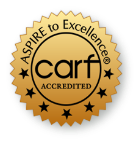
Developmental Disability Services
Florida Parishes Human Services Authority is the single point of entry for developmental disabilities services in the following parishes: Livingston, St. Helena, St. Tammany, Tangipahoa, and Washington Parish.
To initiate the process of determining eligibility for services, please call (985) 543-4730 anytime Monday through Friday from 8:00 a.m. to 4:30 p.m. and request to schedule an entry appointment for Developmental Disabilities. The person for whom eligibility is to be determined, must be present when applying for services. The initial in-person interview date will be the person’s “protected” date. The “protected” date will be the date included on OCDD registries for supports or services requested (except EarlySteps).
You may complete the Initial Contact form before or during the interview. To complete the process and substantiate the qualifying condition bring the following supporting documentation to the in-person interview.
- Proof of identification
- Proof of health insurance or Medicaid card
- School records (if receiving or have received special education services such as IEP, Pupil Appraisal)
- Legal papers (custody, interdiction, power of attorney, etc.)
- Psychosocial evaluations which may include an IQ score
- Autism Spectrum Disorder evaluation by a Licensed Professional for whom diagnosis and assessment is with in his scope of practice based upon a least one recognized standard assessment.
- If the potentially qualifying condition is a medical diagnosis bring a medical assessment current within twelve (12) months.
- If a behavioral health condition exists a behavioral health assessment within 12 months.
If you do not have these documents, you will be assisted in in obtaining them.
What to expect at the in-person interview:
- A review of the criteria for participation.
- Potential resources and referrals including Medicaid participant services.
- Review of evaluations requested and identify additional information that may be needed.
- Signing of the HIPAA Authorization to Release Information form or Obtain Information form, if applicable.
- You will receive a document detailing the Rights of People with Developmental Disabilities.
- Signing of the OCDD Request for Participation Form
- For individuals 18 years of age or older or turning 18 before the next election and will be offered the opportunity to register to vote.
- Questions related to the developmental milestones will be asked.
- The standard screening measure/tool concerning functional limitation and support needs will be completed.
- A Support Profile will be completed which will identify the supports and services, desires, goals and any issues concerning the person’s well-being.
Services and Supports
Services and supports are developed on a Plan of Support which focuses on the individual’s goals to build the best life possible. Such services and supports may include the following:
- Individual and Family Support: The intent of the program is to meet those needs of individuals a with developmental disabilities, which exceed those normally met by existing resources, both entitlements and those occurring naturally in the individual’s family and community. Examples: Personal Care Attendant, In home respite, companion care.
- Flexible Family Fund: This program provides a cash stipend to family of eligible children under the age of 18 years with severe and profound disabilities. The intended use of the cash stipend is to be used for the extraordinary cost of a child with severe or profound developmental disabilities living at home.
- Diversion Funding: Funding for unexpected services/support when no other funding source is available.
- Crisis Referral: A referral to a program for intense intervention.
- Residential Services: Assistance in a referral to a licensed private provider which provides 24 hour supports in a community or group home.
- PASRR: When an individual with a developmental disability seeks admission to a nursing home, the most appropriate setting and specialized services are reviewed.
- Day/Vocational: assistance for an individual with developmental disabilities in securing employment related services.
- Early Steps transitioning to the Developmental Disabilities system: A child aged 2 years and 6 months who has been served in EarlySteps will be referred for the intake process into the DD system.
- Screening for Urgency of Need (SUN): This screening identifies needs, reviews supports currently in place, and determines the urgency of any unmet needs. This screening assists in the prioritization on the RFSR (based on need for services that are available in waiver and current living situation and supports available [not based on complexity of individual need]). Prioritized offers are based on SUN score and then earliest RFSR date.
- Waiver Protected date: The date a person meeting developmental disability eligibility criteria will be placed on the Request for Services Registry (RFSR). If a person is removed from the RFSR, a request to reopen the protected date on the RFSR may be made. Depending on the reason the date was closed, the request may be approved.
- Waiver Services Information
- Children’s Choice Waiver
- New Opportunities Waiver
- Residential Options Waiver
- Supports Waiver
Links to additional Services and Supports
- Louisiana Department of Health Developmental Disabilities
- Northshore Families Helping Families
- EPSDT Personal Care Services
- Flexible Family Funds
- To access the application for flexible family funds, please click here.
What types of services are available to individuals with developmental disabilities and their families?
- Public notice of inability to pay
No one will be denied access to services due to inability to pay. There is a discounted/sliding fee schedule available. Please see the front desk associate if you have any questions.
